© Edm/AI
How does propaganda work and how effective is it? Well, here is the opinion of someone who used it quite effectively for a long time: “The most brilliant propagandist technique will yield no success unless one fundamental principle is borne in mind constantly and with unflagging attention. It must confine itself to a few points and repeat them over and over. Here, as so often in this world, persistence is the first and most important requirement for success.” That was the view of Adolf Hitler, a man who was certainly no stranger to the art of spreading disinformation pretending to be truth. Perhaps it’s what Shakespeare’s “Three Witches” were attempting in his Scottish play, Macbeth: “Double, double, toil and trouble, Fire burn and cauldron bubble” as they sought to cast their evil spell. I can’t imagine Vladimir Putin is a fan of Shakespeare or anything else that originated in Britain. He’d be more likely to choose Chekhov, Tolstoy, Pushkin or Dostoyevsky, I imagine, all of them admirable playwrights, of course, from a country that has produced a prestigious number of them. But “double, double” is especially prescient, since that’s what Putin’s agents are doing, pretending to be known and respected journalists and broadcasters, mainly identifiable by name, whilst disguising themselves as their “doubles” and hiding behind their identities to put out anti-Ukraine (and totally untruthful) propaganda stories worded to damage Ukraine and its leadership. This is a very, very dirty war, and the source of all that dirt is Vladimir Putin and his cronies.
This is just the sort of thing that Putin is up to with regard to Ukraine. After the Soviet Union collapsed, Ukraine voluntarily gave up its nuclear armaments in return for a security guarantee from the United States, the UK, and Russia itself.
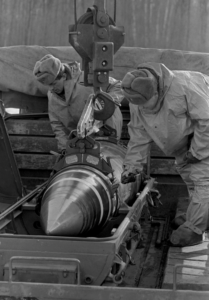
Whether or not Moscow ever intended to abide by its promise we may never know, but that is a matter of no concern to Putin, who, despite a lack of evidence concerning nuclear weapons, claims to believe that Ukraine still has the knowledge and technology needed to produce them. He told the Russian people that if Kyiv were to obtain nuclear weapons it would change everything. He even used that claim to justify his invasion, despite assurances from NATO and the United States that there were no plans to provide such weapons to Ukraine.
Another purported reason for Putin’s decision to invade is a desire to rebuild an empire, restoring Russia’s control over parts of Europe and Asia that it enjoyed during the Cold War. US President Joe Biden has even accused Putin of imperialist intentions. “He has much larger ambitions than Ukraine,” Biden told an audience. “He wants to, in fact, re-establish the former Soviet Union. That’s what this is about.” He could be right; it’s not easy to imagine what ambitions exist within Putin’s dreams of glory. The US Ambassador to the United Nations, Linda Thomas-Greenfield, has gone further, suggesting that Putin is seeking to recreate the pre-Soviet Russian Empire, which would include not only Ukraine but also Finland, Belarus, Georgia, Moldova, Kazakhstan, Kyrgyzstan, Tajikistan, Turkmenistan, Uzbekistan, Lithuania, Latvia, and Estonia, as well as parts of Poland and Turkey. Any attempt to achieve such a goal would, of course, meet with fierce resistance. Is Putin that stupid? Probably (hopefully) not, but the evidence so far reflects his lust for glory and his territorial ambitions. He may, deep down, believe he can turn back the clock to 1919 but there’s little proof that he really could, however ambitious he may be.
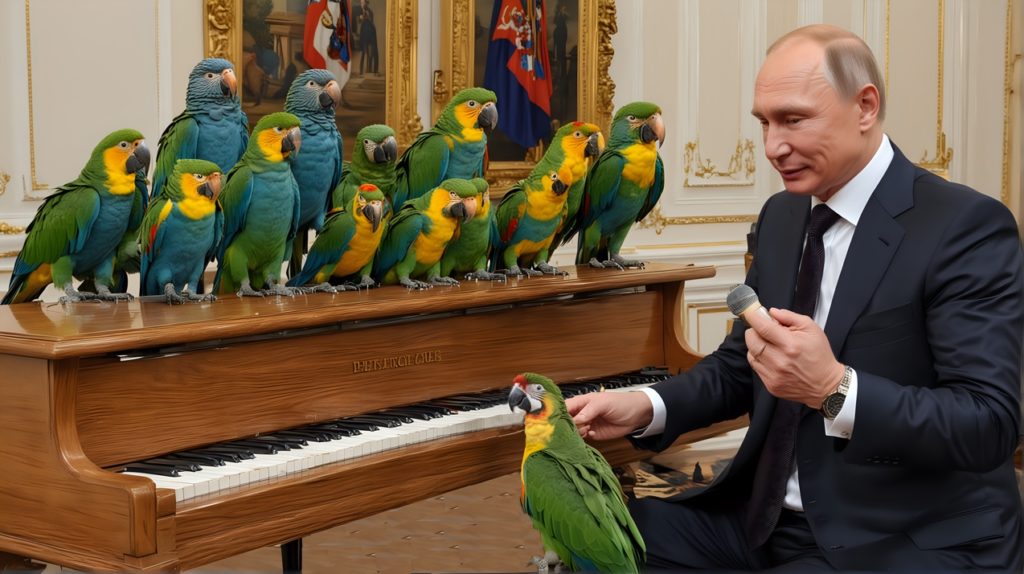
| GOOLIES AND GHOSTIES
Meanwhile, Putin’s far-reaching campaign of misinformation, known as Doppelgänger, carries on regardless, a vital element in his ambitious plans. It’s been described as a Russian-aligned “influence operation”. It has been especially active in Germany where it has been trying to undermine the sitting government, spreading lies and misinformation aimed at influencing public opinion before the upcoming German state, municipal and European Parliament elections in the hope of getting the German people to blame at least some of their problems on Ukraine. Doppelgänger targets running news stories about geopolitical and socio-economic topics, employing a wide range of aggressive tactics, aimed at weakening support for Ukraine. Its agents are also spreading their malicious activities to the US, Israel, and France. They seem to rely on the frequent repetition of their malign message, apparently believing, as Hitler clearly did, that constantly repeating a message of hate will get through to people eventually. German media observers believe that aim in Germany’s case is to erode support for the federal government, which has shown itself sympathetic to Ukraine’s plight. What exactly is a doppelgänger? The word doesn’t appear at all in my 1852 Walker’s Dictionary but my much more recent Chambers Dictionary defines it as meaning “a ghostly double of a human person, an apparition, a wraith”, which makes it sound distinctly sinister and unworldly. Wikipedia describes it as meaning: “A ghostly double of a living person”, just as Cambers does, but it adds: “especially one that haunts such a person” and also “an evil twin”. There is an old Scottish (or possibly Cornish) prayer that goes like this:
“From ghoulies and ghosties and long-leggedy beasties
And things that go bump in the night
Good Lord, deliver us!”
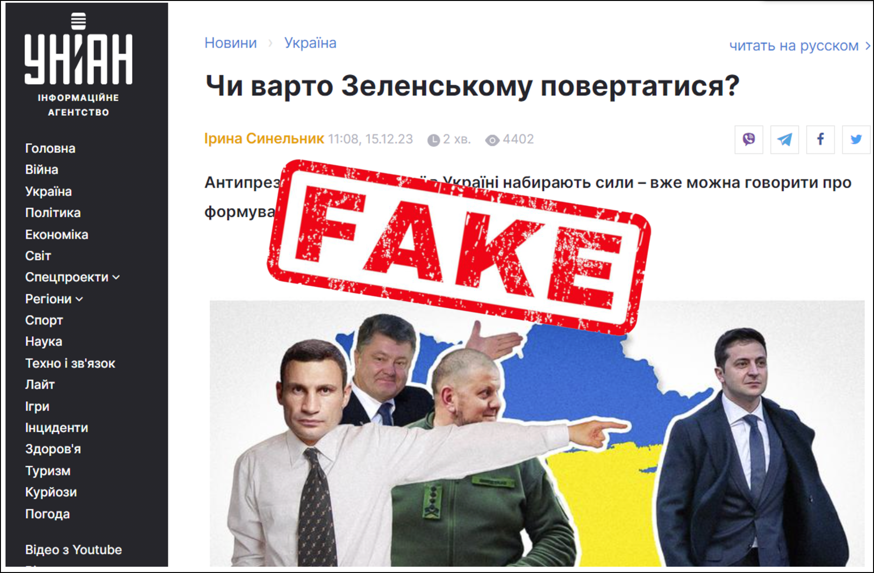
Fake version of the Ukrainian news site UNIAN, part of the Russian information operation known as Doppelganger © Dfrlab.org
I’ve never personally been troubled by ghoulies and ghosties, nor do I believe they exist, but if anyone could summon one to carry out his evil deeds for him, it would be Vladimir Putin, Master of the Macabre.
SentinelLabs and Clear Sky Cyber Security have been tracking Doppelgänger’s activities since the campaign of untruthful propaganda began towards the end of 2023 Most of the lies being put out by Doppelgänger focus on spreading potentially damaging untruths about Ukraine. Germany’s Ministry of Foreign Affairs is concerned about Doppelgänger’s activities. Doppelgänger’s activities include the widespread and clearly well-co-ordinated attacks on Ukraine and its sympathisers overseas, using the “X” (formerly Twitter) network. These accounts pick up on anti-Ukraine news stories from third-party websites, so that it appears to be repeating widely-held anti-Ukrainian beliefs that were, in fact, created only in Russia and not widely held at all It’s true that Donald Trump once described Putin as “a nicer person than I am”, but perhaps that says more about Trump than it does about Putin.
Putin is an admirer of the old KGB and has been since childhood. A mistake many observers make is to describe him as “ex-KGB”. There is no “ex” about it: he is KGB through and through, to the very core, and always will be. It was in 1999, however, when he was Prime Minister and soon to be elected President, that he attended an event at the KGB’s notorious old headquarters, the Lubyanka (ironically built originally to house an insurance company) in order to commemorate the creation of the Cheka, the original Bolshevik political police.
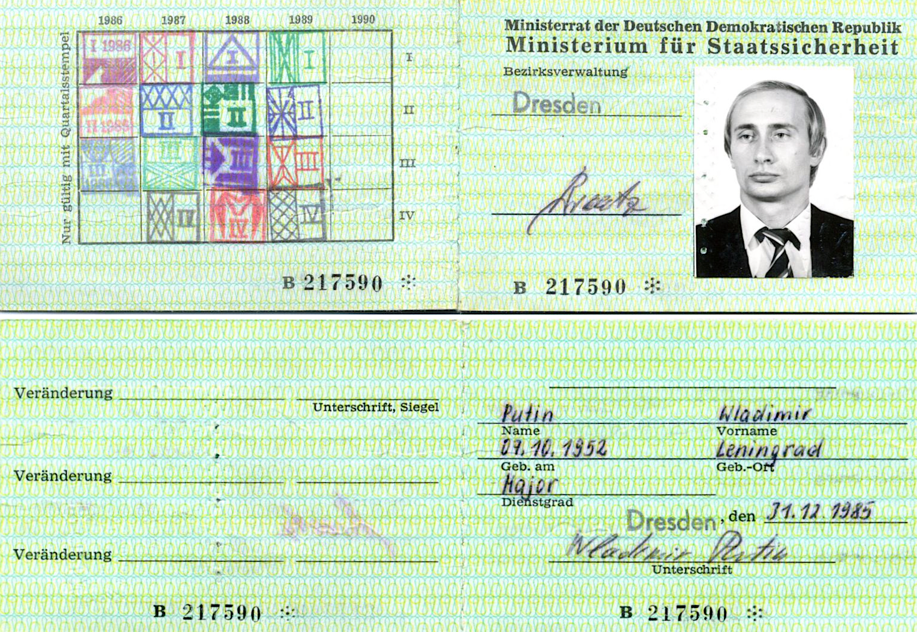
Vladimir Putin’s Stasi identification card when he was assigned as a KGB agent in Dresden in 1985 © Nrf
“Dear comrades,” he said as he raised a toast, “I can report that the group of agents you sent to infiltrate the government has accomplished the first part of its mission.” These were the words of someone who so loved the concept of the KGB that he tried to join it while still at school. He made the offer (or was it an application?) at the KGB’s regional headquarters in Leningrad, seemingly oblivious to the fact that its cellars had once flowed with the blood of Stalin’s enemies. Putin’s offer was not accepted and he was told to go and complete his military service. Joining the KGB had to wait until after he’d achieved his law degree at Leningrad State University in 1975, but membership left its mark. In Mark Galeotti’s frightening book, “We Need to Talk About Putin”, there is a quote from American Senator John McCain, who said after meeting Putin, “I looked into Mr. Putin’s eyes and I saw three things: a ‘K’, a ‘G’, and a ‘B’.” Putin has only a few friends, its said, but he retains links with other Chekists and fellow KGB-veterans. The Chekists, by the way, are the people back in the old Soviet Union who believed that the secret police should be in charge of every sphere of society. They did not favour personal freedom. Galeotti points out Putin’s tough childhood, being raised in Leningrad in a cramped one-room apartment without a bath or access to hot water. It must have left a deep and lasting impression on the young Putin. Galeotti also points out that there is no such thing as a former KGB officer, but also mentions that Putin remains on friendly terms with the Rotenberg brothers, millionaires with whom he practised martial arts, and with Sergei Roldugin, a prominent cellist.
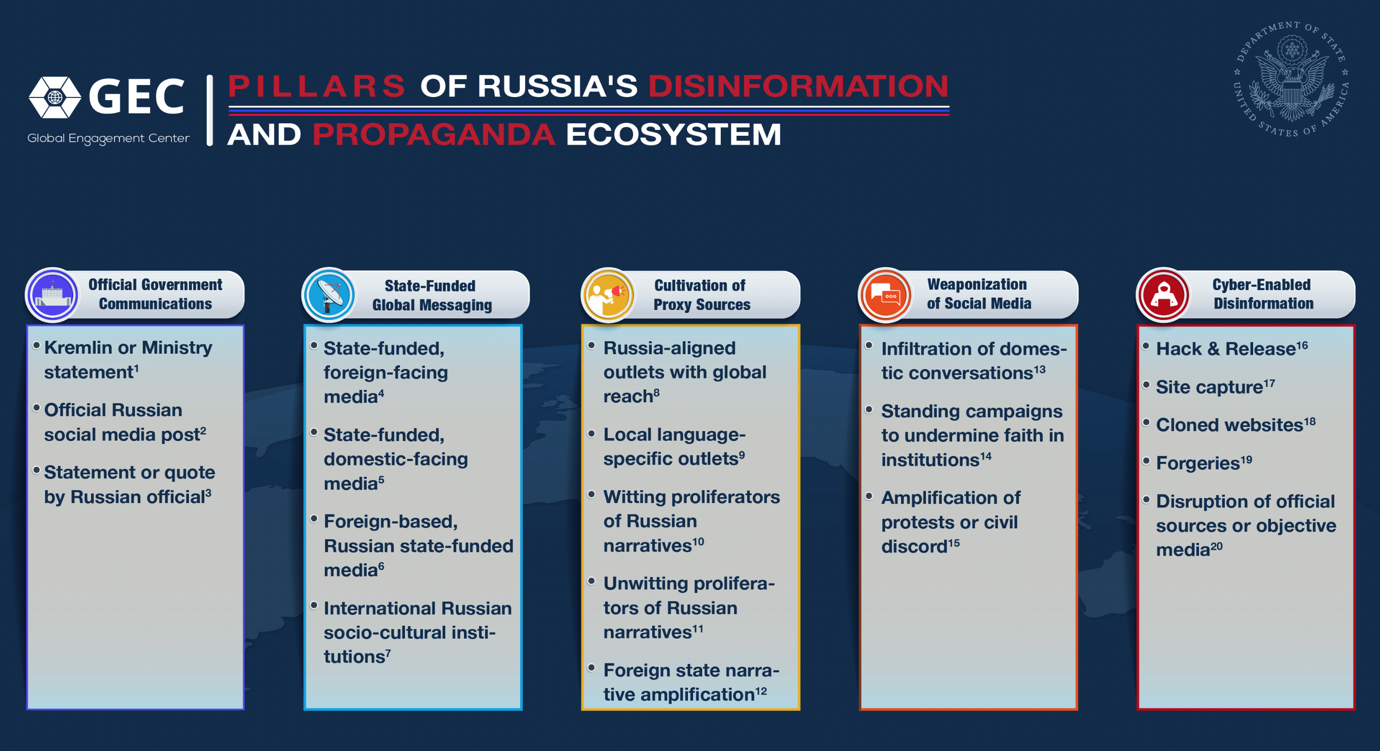
| VOTE NOW, VOTE OFTEN
Doppelgänger is apparently engaged in doing Putin’s will, which doesn’t include playing the cello. There is a great deal about it that is deeply sinister but with no sign of ghosts or other supernatural entities. There would appear to be little connection with Marxist politics, either, but then Putin is no Marxist and would not have got on well with the historical Karl Marx. It is only a handful of sentimental leftists in the West who believe that Russia still harbours old far-left ideology. Putin has put an end to that. The original followers of Karl Marx with his beliefs in equality were sure that history was on their side. They thought that Communism was not only perfect but inevitable. Part of that was because of education, something the revolutionaries believed in, albeit with a caveat: “The education of all children, from the moment they can get along without a mother’s care, shall be in state institutions.” Even so, Marx believed that everyone should enjoy life, at least as much as possible: “Surround yourself with people who make you happy,” he wrote, “People who make you laugh, who help you when you’re in need. People who genuinely care. They are the ones worth keeping in your life. Everyone else is just passing through.” Marxism, of course, is not the inevitable end of the road. It would take work and dedication to build a perfect and fair state. Remember what Vladimir Lenin said: “Truth is the most precious thing. That’s why we should ration it.” That seems to be a policy followed by a great many governments these days.
Perhaps we should remember an old Soviet joke: “Question – What is the difference between capitalism and socialism? Answer – Capitalism is the exploitation of man by man, and socialism is its replacement by its opposite.” Yes, I know: it may have had Soviet citizens rolling in the aisles back in the old days but it wouldn’t have raised a giggle in the West, then or now. So what does Putin really believe in. For a detailed examination, I recommend Galeotti’s book, but it seems clear that Putin firmly believes that security and respect depend upon a state being strong, in the military sense. In Putin’s case, his belief is in having him in charge of everything. Russia may be a capitalist state today but it is very much affected by corruption and the part being played by oligarchs and the greedy monopolies. Putin has so far shown no sign of wanting to change that fundamentally. As long as he remains in sole and unchallenged control, everything is fine, he thinks.
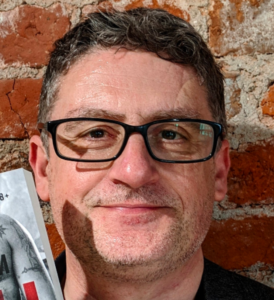
Galeotti writes that Putin “believes in power and pragmatism, rather than philosophy. As long as he can get what he wants from the existing system, he’s content.” He seems to envy the United States and its “exceptionalism”, which allows it to do whatever it likes, whenever it wants to. That, according to Galeotti, is what Putin wants for Russia: boundless, unrestricted power over everything.
All the Marxists wanted, at least in theory, was the overthrow of capitalism, but the Communist Manifesto had an enormous, almost incalculable impact on so many things. “It is difficult to imagine,” wrote the author Umberto Eco, “that a few fine pages can single-handedly change the world.” But they did, although it seems unlikely that they impinged on Putin’s consciousness. Total equality for all is not one of his aims. It seems, or if it is, then it’s total equality for all those inferior to him, by which he would doubtless mean “everybody”. He is not, nor ever was, an idealist; all he wants is personal power, it seems. Oh, and he wants everyone to recognise that Russia is at the top of the world, and that he runs it. We shouldn’t forget, however, that the Communist Manifesto is adamantly against nationalism. “Working people,” it insists “have no country”, although that particular quotation is often cited as proving that the Manifesto seriously underestimates the tenacity of nationalism in the popular psyche. According to the Manifesto, the continuation of nationalism gives rise to racism and supremacism, whilst hampering the free movement of workers, thus allowing employers to reduce wages and cut back on workers’ rights and privileges. Those on the Left insist that nationalism must be overcome and defeated. In China Melville’s brilliant book about the Communist Manifesto, “A Spectre Haunting”, there’s a claim that Marxism has failed to tackle the nationalism issue. “For tradition(s) of Leninist politics, international solidarity is promoted by the insistence on the right of oppressed nations to self-determination. This is honourable in principle and tactically persuasive as far as it goes but (i) the latter only at a fairly abstract level and (ii) right or not, it has little to say about the origin and sheer tenacity of the nationalism it opposes”. In other words, we are all human beings with human frailties, including built-in biases with regard to nations and nationhood.
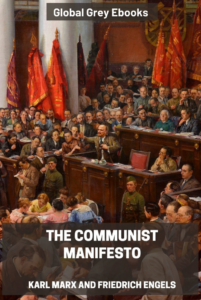
Perhaps this explains Putin’s endless self-serving lies about Ukraine not really being a nation. After all, Putin won the most recent elections with a convincing majority, which involved fraud on a massive scale. Putin sees nothing wrong in that, as long as it ensures he retains the keys to the Kremlin. Putin’s United Russia party is credited with gaining almost half of all the votes cast, but his biggest critic was recently murdered and others not sympathetic to his egocentric style were prohibited from taking part in the election at all. There were also claims of forced voting and ballot-stuffing. As a result, Putin’s party will have more than two thirds of the seats in the Duma. In fact, Putin is quite popular with quite a lot of Russians who have seen him standing up to the West. Certainly, the party faithful were delighted with the outcome. The Communist Party, which came second, saw their tally dwindle as electronic votes came in. An EU spokesman spoke about widespread fraud, but the independent monitoring group, Golos, has been branded “a foreign agent” by the Kremlin, which means nobody can take any notice. Even so, although their views will not be reported in Russia, the US, Germany and the UK reported that the elections were neither free nor fair. Golos claimed that large numbers of Russians had contacted the organisation alleging that their employers had pressurised them to vote and one Muscovite told the BBC that she saw no point in voting because “it’s all been decided for us anyway”. Some election observers said they had been threatened. Welcome to the Putin version of democracy.
| THE KATYN MASSACRE – A HISTORIC SOVIET DISINFORMATION CAMPAIGN
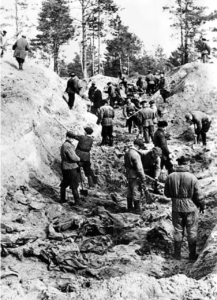
An example of Soviet propaganda and disinformation disseminated by certain Western Communists during decades refers to the Katyn massacre, a sequence of large-scale killings of around 22,000 Polish military commanders and intellectuals who were prisoners of war, conducted by the Soviet Union, notably the NKVD (Soviet Secret Police) in Poland in 1940 when Poland was still under Soviet control.
The directive to execute prisoner members of the Polish officer corps was covertly issued by the Soviet Politburo under the leadership of Joseph Stalin.
The authorities supporting the Soviet Union after the Soviet takeover in the aftermath of the war concealed the incident in line with the official Soviet propaganda, intentionally suppressing any sources that could reveal knowledge about the atrocity. The Soviets attempted to eliminate the remembrance of the Katyn massacre.
Moreover, the concealment of the killings for 50 years, involving several Western governments, renders it the most effective Soviet and Russian disinformation and fake news campaign in the 20th century.
Mettre tout le texte et la photo en encadré avec eventuellement un applat de couleur claire
| A PROPAGANDA WAR (RUSSIA IS WINNING)
Whilst ensuring that he would win in Russia (there was never any doubt, given his unfair and undemocratic tactics), Putin has also had agents in other countries, from English country towns to Canadian universities. Their effects on public opinion may seem insignificant, but these agents do sometimes emerge in public institutions, companies, and in local, regional and national governments. It’s probably not so much a case of seeking influential power as of undermining confidence in existing systems and personnel. Moscow has plenty of money at its disposal to pour into its vote-buying operations. Sometimes, the money ends up in the hands of individuals, on other occasions it helps fund political organisations or parties. It’s believed in some quarters that Putin helped to fund the “Vote leave” campaign to get the UK to leave the European Union on the grounds that it would weaken it. I’m sure that the anti-EU media that carried the propaganda did not realise (or did not care?) that they were carrying out the wishes of Moscow. I’m sure the readers didn’t know. Expressions such as “let’s all support Putin” would seem out of place in such right-wing newspapers as the Daily Mail or the Daily Express, however right wing Putin himself may be.
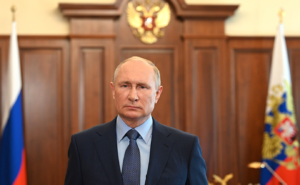
As for Ukraine, Putin’s unprovoked war continues, largely fuelled by his ego. He seems to be relying on the growing weakness of Western governments when confronted by an organised propaganda campaign, such as Doppelgänger’s. Western governments also seem to be reluctant to pour money into countering it. There’s no point in trying a similar approach in Russia, where foreign media and websites are banned. The Russia military calls the actions of outfits like Doppelgänger “information-psychological warfare”, where it is aimed at sapping the enemy’s energy and willingness to respond. So it is that Russia bombards the West with an out-and-out barrage of fake, adapted “real” (almost) and misrepresented news stories. It works, too: in the first year of Putin’s war in Ukraine, accounts linked to the Kremlin got more than 16-billion viewings, intended not only to weaken support for Ukraine but also to damage Western democratic systems. It’s a very dirty form of warfare and Russia is very practised and expert at it. It’s even been suggested that Western government are turning a blind eye to what Russia is doing, while the social media companies seem to be ignoring it, despite their promises to act. Instead, viewers in the US were subjected to two hours of Putin’s outright lies on You Tube at “X” (formerly Twitter) in which he spoke very untruthfully about the history and ownership of Ukraine. It was an exercise in the incorrect interpretation of the past, expertly conducted. That interview conducted by Tucker Carlson, has had more 120-million views in the US.
Putin has been in charge of Russia either as its prime minister or president since 1999. The country’s 1993 constitution was supposed to impose limits on how long anyone could remain in charge, but amendments since then have allowed Putin to stay in power. At the age of 71, he still enjoys favourable approval ratings while Russia has survived the economic sanctions applied by the West in response to his invasion of Ukraine without lasting damage. With no free media, no-one can legally oppose Putin, and even his “critics” have voiced their support for his war against Ukraine.
There is a reason for Putin’s continued occupation of the Kremlin: the Russian people see him as strong, someone who is making Russia a force to be reckoned with in the world. Putin is a clever man, even if many people in West see him as someone to be feared for his ruthless ambition.
Now that Putin has prolonged his sole authority in Russia following a carefully orchestrated election without any credible and legitim opposition the world better be prepared for the worst.

